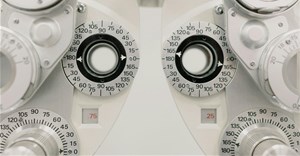Trending
Elections 2024
Jobs
- Conveyancing Secretary Cape Town
- Legal Advisor Johannesburg
- Orchards Partner Gauteng
- Call Centre Manager - Debt Collection Stellenbosch
Regulations for complementary medicines are invalid - SCA

The Regulations stipulated a number of requirements that complementary medicines would have to comply with, including labelling and advertising requirements. Given the wording of the Regulations, producers of complementary medicines were also advised to obtain a licence from the South African Health Products Regulatory Authority (Sahpra) to manufacture such products on the basis that complementary medicines qualify as, and fall within, the definition of a “medicine” as defined in the Act.
An application was brought by The Alliance of Natural Health Products (South Africa) [the Alliance] in the Pretoria High Court for an order declaring the Regulations invalid and setting them aside. The Alliance’s members include manufacturers and retailers of complementary medicines and health supplements. The Alliance was successful in its application and the Minister and Sahpra, the Respondents in the application, filed an appeal with the Supreme Court of Appeal (the SCA).
The Alliance’s main argument was that the scope and ambit of the Regulations exceeded the powers of the Minister granted in terms of the Act. Specifically, the Minister was only empowered to regulate medicines and scheduled substances. The Alliance argued that complementary medicines, as defined in the Regulations, did not fall within the definition of either of these categories.
The SCA took an in-depth look at the definition for “medicine” in the Act and deduced that medicines must always have or claim to have a therapeutic purpose. The court also looked at the definition of “complementary medicine” in the Regulations and found that it was wide enough to cover substances that do not have or claim to have a therapeutic purpose. Similarly, the SCA found that the definition of “health supplements” in the Regulations, as a sub-category of complementary medicines, deviated even further from “medicine” as it included substances used for restoring, correcting or modifying a physical or mental state by complementing health; supplementing a diet; or a nutritional effect. This, the court found, “takes it even further away from substances that have or claim to have a therapeutic purpose”. The SCA concluded that, although some complementary medicines and health supplements could qualify as medicines, within the definition of the Act, a wide range of them would not.
The SCA upheld the court a quo’s decision and declared the Regulations unlawful on the basis that the complementary medicines did not fall within the ambit of the Act. Both the a quo Court and the SCA recognised the public interest need to regulate complementary medicines and health supplements, that are not medicines under the Act and the order was, therefore, suspended for a period of 12 months to allow Sahpra an opportunity to correct the defect.














